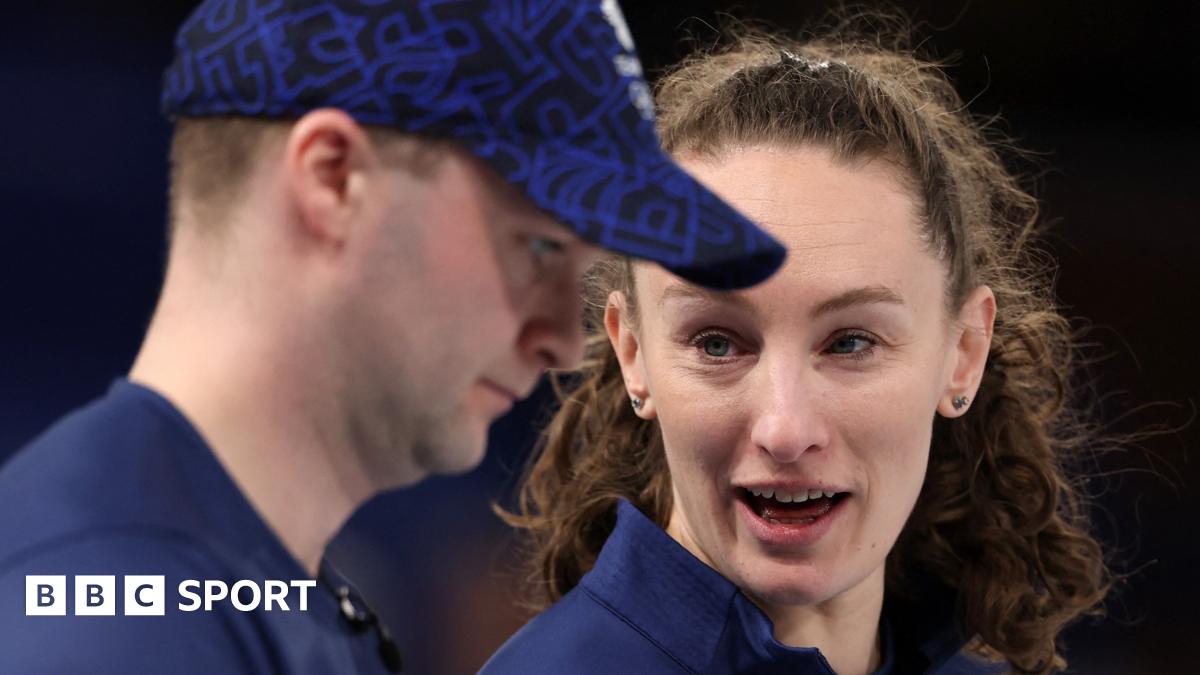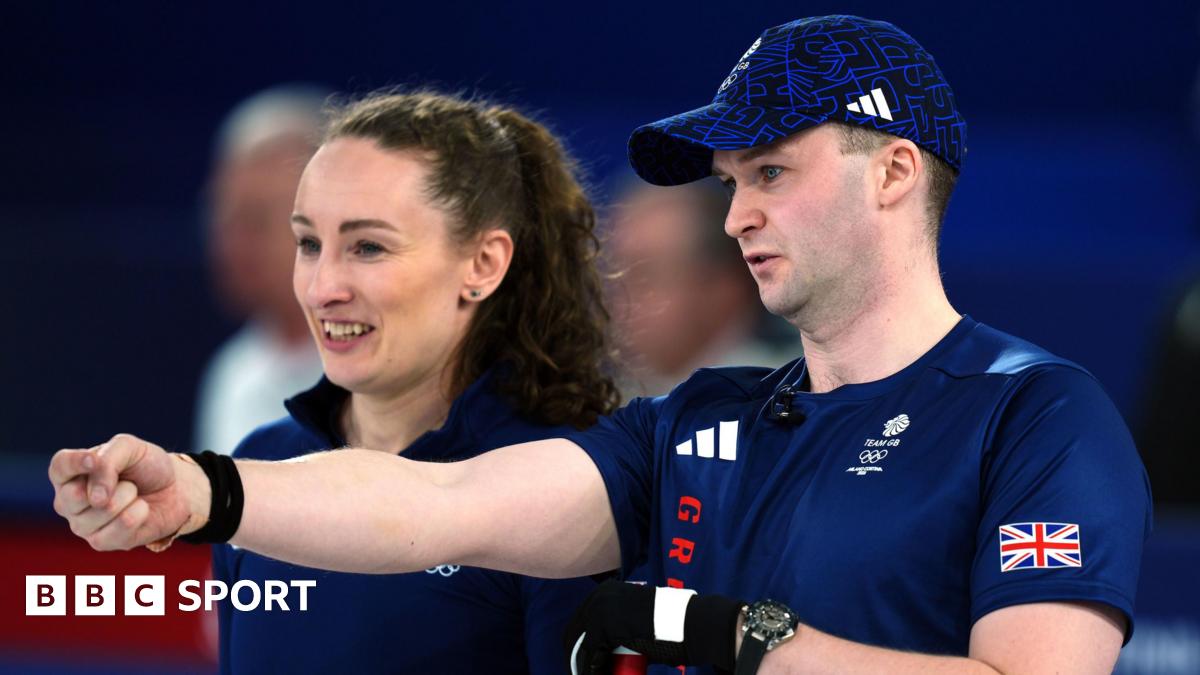Winter Olympics 2026: Bruce Mouat & Jen Dodds denied curling bronze as GB medal wait continues
In a game of fine margins, Mouat and Dodds were repeatedly an inch or two away from where they needed to be.
They started with the hammer – theoretically advantageous in allowing a team to control a match – and had a shot in the first end to take three points.
However, Dodds’ effort was fractionally out and the Italians stole one. It would be a recurring theme as Constantini and Amos Mosaner dictated the contest.
The British pair levelled, before the hosts edged back ahead in a cagey third end and pinched another in the third. Again, it was a near-miss from Dodds.
That had Italy 3-1 ahead at the interval and GB chasing.
One in the fifth was less than they wanted but a big mistake by Mosaner in the sixth opened the door. Was this going to be the moment the momentum shifted?
It wasn’t. Constantini – a picture of tranquility throughout – played a perfect shot to ensure the Italians edged two clear again with two to play.
GB needed a big score, and deployed their powerplay, but again could only take one and were left needing a steal to even force an extra end.
They couldn’t. And they were left to face the nightmare scenario of another Games in which they have finished in fourth place and without a mixed doubles medal.
“We spoke last night about how lucky we are to be playing at the Olympics as best mates,” Mouat added. “We are two people that grew up together and never really knew where we could go with curling. It has been pretty special with Jen.
“I’m obviously pretty gutted but I’m so proud of us for sticking at it.”
In Beijing, they responded the right way, with women’s gold and men’s silver. What will they do this time?



